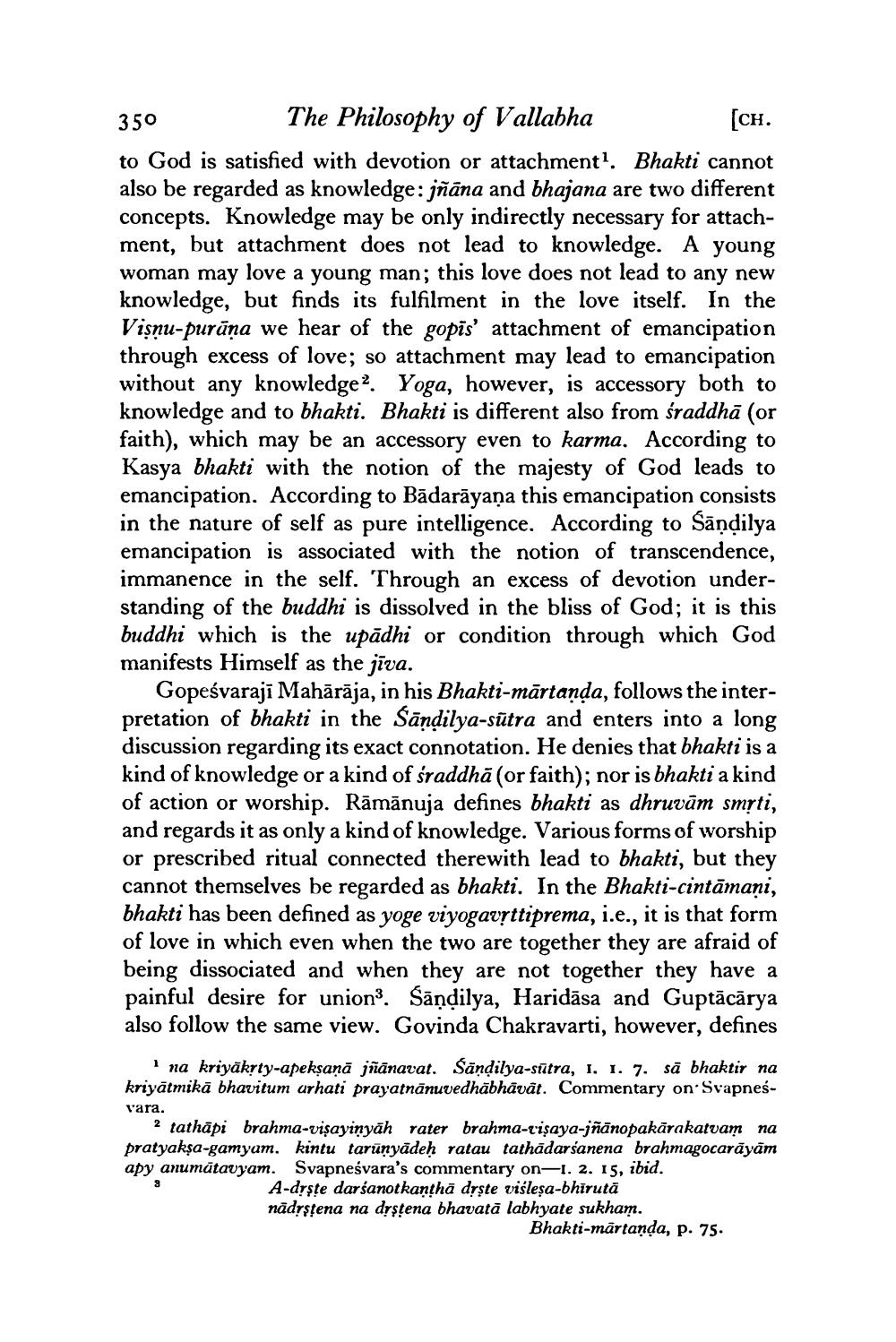________________
350 The Philosophy of Vallabha
[CH. to God is satisfied with devotion or attachment!. Bhakti cannot also be regarded as knowledge: jñāna and bhajana are two different concepts. Knowledge may be only indirectly necessary for attachment, but attachment does not lead to knowledge. A young woman may love a young man; this love does not lead to any new knowledge, but finds its fulfilment in the love itself. In the Vişnu-purāna we hear of the gopīs' attachment of emancipation through excess of love; so attachment may lead to emancipation without any knowledge?. Yoga, however, is accessory both to knowledge and to bhakti. Bhakti is different also from śraddhā (or faith), which may be an accessory even to karma. According to Kasya bhakti with the notion of the majesty of God leads to emancipation. According to Bādarāyana this emancipation consists in the nature of self as pure intelligence. According to Sāņdilya emancipation is associated with the notion of transcendence, immanence in the self. Through an excess of devotion understanding of the buddhi is dissolved in the bliss of God; it is this buddhi which is the upādhi or condition through which God manifests Himself as the jīva.
Gopeśvarajī Mahārāja, in his Bhakti-mārtanda, follows the interpretation of bhakti in the Sāndilya-sūtra and enters into a long discussion regarding its exact connotation. He denies that bhakti is a kind of knowledge or a kind of sraddhā (or faith); nor is bhakti a kind of action or worship. Rāmānuja defines bhakti as dhruvām smặti, and regards it as only a kind of knowledge. Various forms of worship or prescribed ritual connected therewith lead to bhakti, but they cannot themselves be regarded as bhakti. In the Bhakti-cintāmaņi, bhakti has been defined as yoge viyogavṛttiprema, i.e., it is that form of love in which even when the two are together they are afraid of being dissociated and when they are not together they have a painful desire for union?. Sāņdilya, Haridāsa and Guptācārya also follow the same view. Govinda Chakravarti, however, defines
2 taksa-gamy.cam. Svare dar
na kriyakrty-apeksanā jñānavat. Sandilya-sútra, 1. 1. 7. sā bhaktir na kriyātmikā bhavitum urhati prayatnānuvedhābhāvåt. Commentary on Svapnesvara.
2 tathāpi brahma-visayinyāh rater brahma-visaya-jñānopakārakatvam na pratyakşa-gamyam. kintu tarünyadeh ratau tathādarsanena brahmagocarāyām apy anumătavyam. Svapneśvara's commentary on-1. 2. 15, ibid.
A-drste darśanotkanthā drste viśleşa-bhirutā nādrstena na drstena bhavatā labhyate sukham.
Bhakti-martanda, p. 75.




